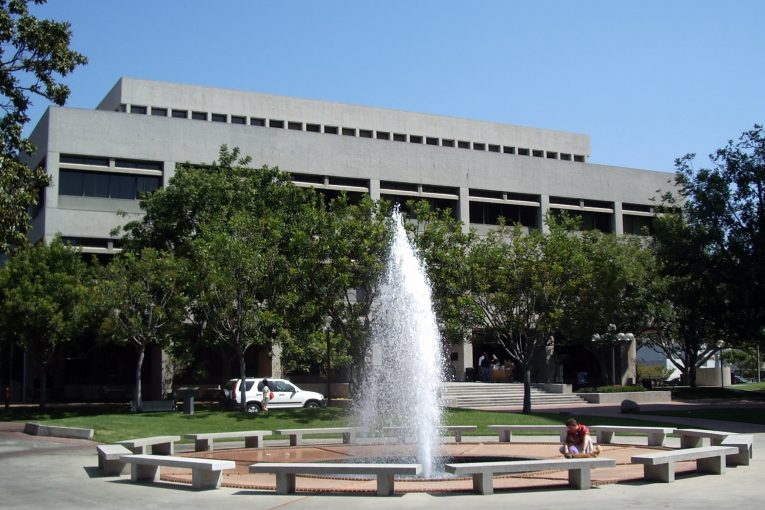

Twenty-nine USC Gould School of Law faculty signed onto an open letter to President Carol Folt and Provost Andrew Guzman Saturday supporting “free speech and equal respect for all students.”
USC is built on a foundation of diverse ideas, which is critical to our mission of education and the advancement of knowledge across disciplines. It is during difficult times that the freedom of speech is most vital and also most vulnerable to restriction. The October 7m Hamas attack and Israel’s military operations in Gaza have opened deep divisions across the nation, leaving many of us-and especially our students-wrestling with our own core values. But the core values of the university should be clear: supporting students and the free expression of ideas, however challenging, provocative, or unsettling they may be. Sadly, the university’s recent actions have conveyed a very different message.
On April ism, the university announced that it had canceled undergraduate valedictorian Asna Tabassum’s as-yet unwritten commencement speech, citing security risks. Although the right to speak is not unlimited, restrictions must be neutral, not merely reflective of the dispositions of administrators and others in power, and reasonable, not overbearing in a manner that chills future speech. Vague references to safety,  especially if safety is defined as a right not to feel discomfort or be inconvenienced, are well-known weapons against expression. The primary response to threatened violence should be protecting speakers through added security. However, if specific and serious threats of physical violence made security measures infeasible, the university could still have honored our valedictorian and principles by, for example, recording her remarks and showcasing them at commencement. Censorship is not the only way to provide safety; it unnecessarily gives hecklers a veto.
especially if safety is defined as a right not to feel discomfort or be inconvenienced, are well-known weapons against expression. The primary response to threatened violence should be protecting speakers through added security. However, if specific and serious threats of physical violence made security measures infeasible, the university could still have honored our valedictorian and principles by, for example, recording her remarks and showcasing them at commencement. Censorship is not the only way to provide safety; it unnecessarily gives hecklers a veto.
The university also acted contrary to our core values when it called in armed police officers to violently suppress what was, until then, a peaceful protest that occupied a small portion of the campus and did not disrupt day-to-day operations. If the university was concerned that “outside agitators” would turn the protest violent, it could have had security on stand-by to protect the peacefully protesting students and other community members. It could have engaged in constructive discussions with students on all sides. Instead, the police came in full force, ran roughshod over the students, created new security risks, and escalated matters. While we do not doubt the challenges of handling these difficult issues, the university’s decisions have come at a substantial cost to students and faculty, as well as to USC’s reputation as a premier research institution founded on intellectual freedom. We urge that going forward in these politically heated times, the administration be guided by the dual principles of free speech and equal respect for all students. Only by treating all students, faculty, and staff like important members of our community and minimizing police involvement to the greatest extent possible, can USC begin to heal, recommit to our foundational principles, and become an example of how to have safe and supportive dialogue across difference.
Scott Altman, Virginia S. & Fred H. Bice Professor of Law
Jody David Armour, Roy P. Crocker Professor of Law
Bernadette Atuahene, Frances R. and John J. Duggan Professor of Law
David B. Cruz, Newton Professor of Constitutional Law
Angel Diaz, Visiting Assistant Professor of Law
Niels W. Frenzen, Sidney M. and Audrey M. Irmas Endowed Clinical Professor of Law Camille Gear Rich, Dorothy W. Nelson Professor of Law and Sociology
Aya Gruber, Harold M. Heimbaugh Professor of Law
Felipe Jiménez, Associate Professor of Law and Philosophy
Gregory Keating, William T. Dalessi Professor of Law and Philosophy
Rebecca Lonergan, Professor of Lawyering Skills
Thomas D. Lyon, Judge Edward J. and Ruey L. Guirado Chair in Law and Psychology
Ed McCaffery, Robert C Packard Trustee Chair in Law, Economics, and Political Science
Erin Miller, Assistant Professor of Law and Philosophy
Clare Pastore, Professor of the Practice of Law
Jef Pearlman, Clinical Associate Professor of Law
Marcela Prieto, Associate Professor of Law and Philosophy
Jonathan Quong, Professor of Philosophy and Law
Jean Reisz, Clinical Associate Professor of Law
Stephen M. Rich, Maurice Jones, Jr. Class of 1925 Professor of Law
Elyn R. Saks, Orrin B. Evans Distinguished Professor of Law, Psychology, and Psychiatry and the Behavioral Sciences
Wayne Sandholtz, John A. McCone Chair in International Relations
Hilary M. Schor, Professor of English, Comparative Literature and Law
Barrett Schreiner, Associate Professor of Lawyering Skills
Deepika Sharma, Clinical Assistant Professor of Law
Dan Simon, Richard B. and Maria L. Crutcher of Law and Psychology
Nomi Stolzenberg, Nathan and Lilly Shapell Chair, Professor of Law
Abby Wood, Professor of Law, Political Science, and Public Policy Adam
Samuel Zimmerman, Robert Kingsley Professor of Law
